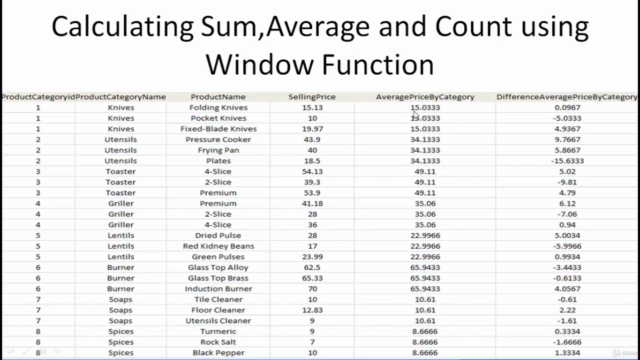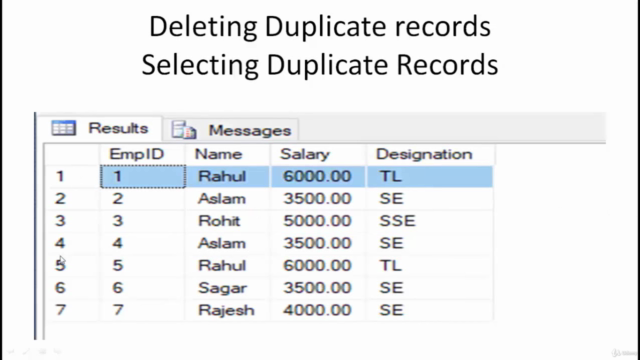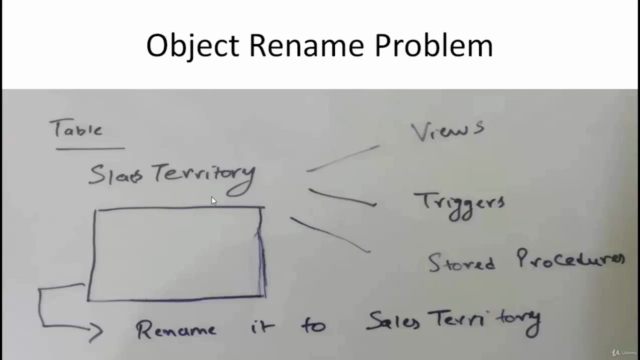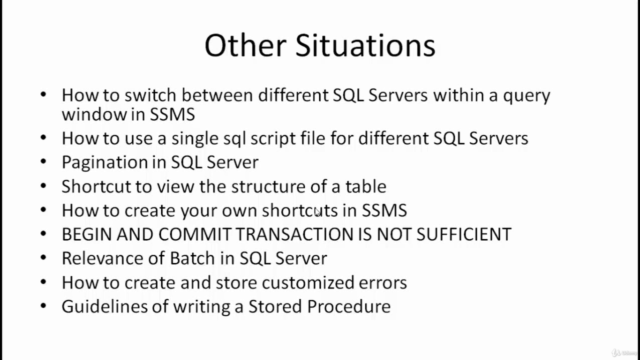T-SQL Training with Real World Scenarios:Tricks of the Trade

Why take this course?
It looks like you've provided a comprehensive list of topics related to SQL Server that are essential for a database professional to understand. Here's a brief overview of each topic:
-
Deep dive into Window Functions: These are functions that perform calculations across a set of rows that are somehow related to the current row. This is particularly useful in complex data analysis tasks.
-
Ranking Functions - (Rank, Dense_Rank, Row_Number, NTile): These functions assign a ranking to each row within a group based on some specified column(s).
-
Aggregate Functions - (Sum, Min, Max, Avg, Count): These functions allow you to perform calculations and return a single value representing a set of rows.
-
Analytical Functions-(Lead, Lag, First_Value, Last_Value): These functions are used in window operations to access data from preceding or subsequent rows.
-
Stored Procedures: These are database objects that encapsulate SQL statements, which can be called from applications to perform tasks on the database server. They provide many benefits such as improved performance and security.
- Input Parameters: Allow users to pass data into the stored procedure.
- Output Parameters: Return data back to the user or calling application.
- Default Parameters: Provide default values for certain parameters if none are specified.
- Return: Returns a value, often used with scalar functions.
- Table Valued Parameters: Allows the procedure to accept a table as a parameter.
-
Common Table Expressions (CTEs): These provide a way to execute complex queries by breaking them down into more manageable parts. A CTE can refer back to itself, which is where Recursive CTEs come into play.
-
Recursive Common Table Expressions: These allow you to perform recursive operations in SQL Server, which is useful for hierarchical data or iterative computations.
-
Synonyms: These provide aliases for simplifying the access to tables and views in other databases within the same SQL Server instance or across different instances.
-
Identity Columns: Special columns that automatically increment numbers for new rows. They are useful for generating unique keys without having to implement custom logic.
-
Transactions: A sequence of database operations that are treated as a single unit, allowing for data integrity and error handling across multiple statements.
-
Raiserror/Throw:
RAISERRORis used to raise an error in SQL Server, whileTHROWis a more modern approach in newer versions (SQL Server 2012 and above). Both are used to generate runtime errors. -
Error Handling (Try….Catch): This construct allows for exception handling within T-SQL code, similar to try-catch blocks in programming languages like C# or Python. It helps to manage unexpected errors during the execution of a batch of SQL statements.
Each of these topics is critical for a deep understanding of SQL Server's capabilities and for writing efficient, maintainable, and robust SQL code. If you're looking to learn more about any specific topic, feel free to ask!
Course Gallery




Loading charts...